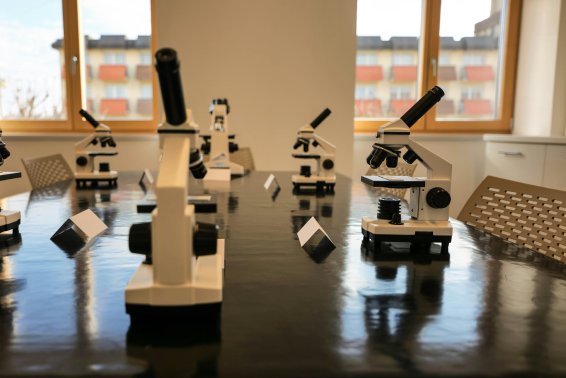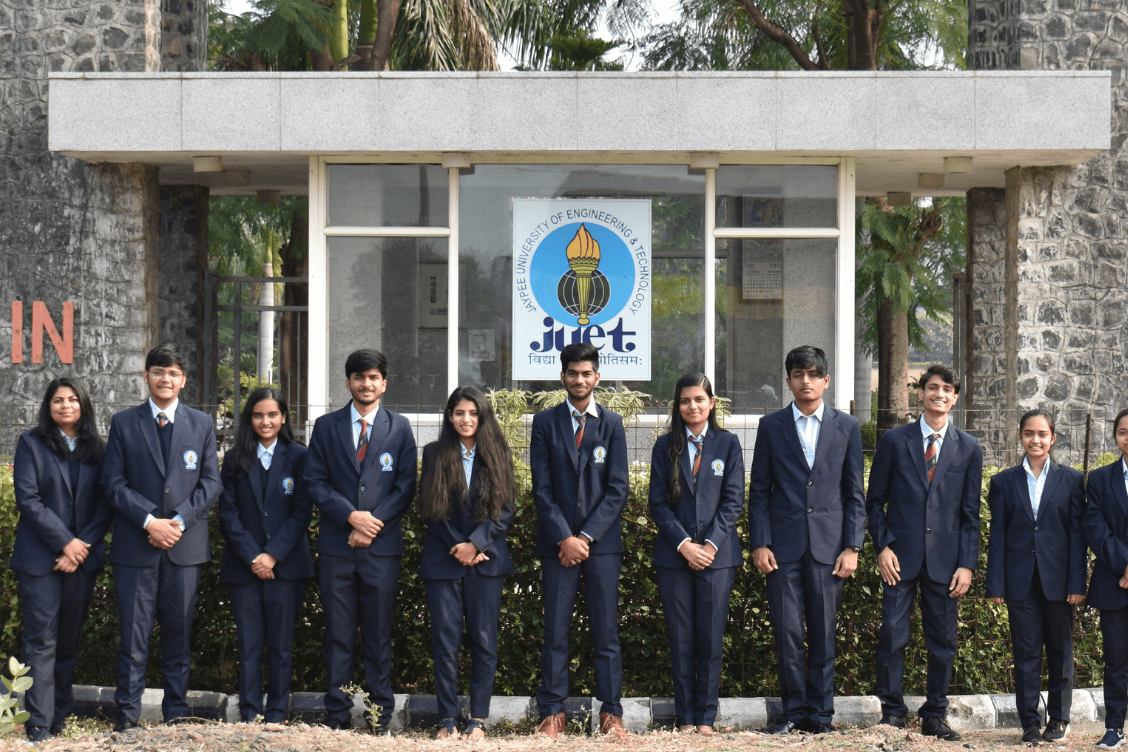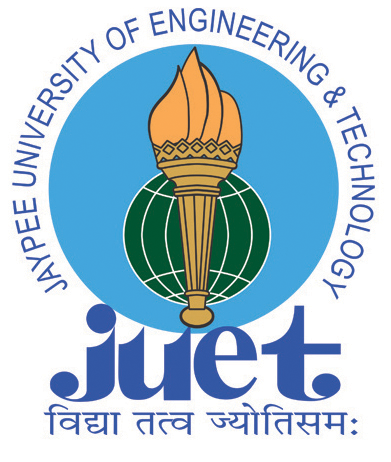The Physics department of JUET by its learned and devoted faculty is committed to nurture basic concepts and fundamentals of physics to provide a solid foundation and assistance in their future endeavor of acquiring and practicing knowledge for future Engineers. Other than providing basic physics course, department is also offering highly specialized optionals like Spectroscopy, Nanotechnology, Quantum computing etc. to quench the thirst of diverse learning.
1. Strong Foundation – Focus on fundamental physics concepts essential for engineering.
2. Specialized Courses – Offers electives like Spectroscopy, Nanotechnology, and Quantum Computing.

To nurture analytical thinking and problem solving skills using basic physics courses as a medium for engineering students.
To work for continuous improvement of the pedagogy of physics and quality of scientific research by intra and interdisciplinary collaborations.
Program Educational Objectives (PEO):
PEO-1:To enable students to conduct applied scientific research in various fields of Physics such as quantum physics, solid state electronics, nanoscience and nanotechnology, and solid state physics etc.
PEO-2: Demonstrate rigorous approach to deal with theoretical and experimental problems.
PEO-3: This program will develop an ability to communicate clearly and concisely the research findings with the scientific communities by adhering to social and professional ethics.
PEO-4: Physics post-graduates will be well preparing for successful careers in the profession or research & innovation in industry and government in one or more of the disciplines and sub-disciplines of Physics.
Program Outcomes (PO):
PO-1: Students develop an ability to apply knowledge in an experiment, research findings, and innovative thought to meet desired performance and specifications.
PO-2: They develop the ability to think critically and analyze complex problems.
PO-3: It will develop an ability to provide analytical solutions to industrial and other research required problems.
PO-4: This program will develop an ability to identify research problems and extract information pertinent to these problems through a detailed literature review.
PO-5: This program will train them to utilize analytical and spectroscopic methods to understand the physics of materials.
PO-6: This program will develop necessary skills to work efficiently in a multidisciplinary area and team.
PO-7: This program will develop an ability to apply science concepts to execute the projects.
PO-8: This program will develop an ability to understand the significance of lifelong learning to meet the challenges of day-to-day life.
PO-9: It will develop an understanding of professional and research ethics.
PO-10: Physics post-graduates will be successful leaders with the quality to handle all kinds of diverse circumstances through nurturing them in the interdisciplinary and multidisciplinary learning environment.
Program Specific Outcomes (PSO):
PSO-1:Students will have adequate knowledge to offer innovative and practical solutions to the research problems with reasonable scientific reasoning.
PSO-2: Students will be prepared to contribute effectively in various areas of theoretical as well as experimental physics.
PSO-3: Students will have a proper understanding of the area which is relevant to the industrial research and problem there in.
PSO-4: Physics post-graduates will be able to acquire firm knowledge of various fundamental theories and modern instrumentation. Furthermore, by using concepts, tools, and techniques related to these topics, they can acquire knowledge and utilize its application in the interpretation and explanations of the limits and accuracy of experimental data in terms of significance.
| M.Sc. - Physics | Click Here |
| M.Sc. - Physics | Click Here |
The University has a well-structured system for promoting and monitoring research on campus. A dedicated research committee, known as the DPMC, is formed for each scholar and is assigned clearly defined responsibilities, including providing guidance and oversight throughout the research process. All Ph.D. scholars are required to adhere to UGC publication norms. The University also has a comprehensive policy in place to prevent malpractices and plagiarism in accordance with UGC guidelines. A well-defined Code of Ethics governs research activities, and its implementation is ensured through multiple measures. These include a mandatory credit course on research and publication ethics—required for all Ph.D. scholars—and regular oversight by institutional ethics committees.
Ph.D.
| Ph.D. - Physics | Click Here |
| Ph.D. Ordinance | Click Here |
| Ph.D. Admission Procedure | Click Here |
| Research Scholars | Click Here |
| Publications | Click Here |
| Courses Description - Theory Courses | Click Here |
| Courses Description - Lab Courses | Click Here |

Unlock career opportunities with top placements in leading global companies. Our dedicated placement cell equips students with essential skills, industry exposure, and expert guidance.
With strong corporate ties, we ensure placements across diverse sectors, including technology, finance, and consulting. Internships, workshops, and recruitment drives provide real-world experience, helping students secure roles in prestigious organizations.
+91-7544-267051 , 267310, 267311, 267312
